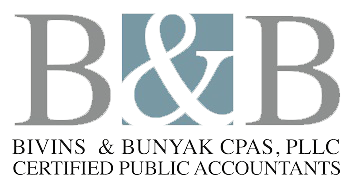Small business owners face a lot of challenges. Daily operations, motivating people, selling their products and services, managing relationships, expense control, accounting, legal issues, managing human resources and taxes – the list is almost endless. With only 24 hours in a day, these challenges are often managed by prioritizing the “fire that burns the hottest.” It’s easy to let little things go, the ones that aren’t “squeaky wheels.” Among these are often the basic types of duties that someone you trust is handling or has been handling for years – keeping and reconciling the books, paying the bills, making deposits, etc, so you can focus on the important stuff – keeping people happy and making money.
Unfortunately, there are pressures people face that can lead them to make and rationalize decisions that can hurt others, organizations or even the business that they work for.
Accountants use the concept of the “Fraud Triangle” to assess this. The three key points are motivation, rationalization and opportunity.
Motivation, or pressure, is the leading circumstance. It could be caused by personal spending issues or unexpected medical bills. Other factors include divorce/infidelity, drugs/alcohol or gambling issues. The key point for employers to be aware of that they must be observant of employees who undergo stressful life changes or appear to be living beyond their means.
Rationalization is generally the next phase in the progression to theft. Once someone has an incentive, they must justify to themselves that it is ok to commit such an act. This often comes in the form of a feeling of contributing to the success of the company, yet not being considered for financial reward. It could also be a mentality of contributing to the owner’s lifestyle without consideration by the owner of that of their employees.
Opportunity is the ability to actually commit the act. This is unfortunate, but if you leave the lid off the cookie jar long enough, it is only a matter of time before someone sticks their hand in it. Whether checks are being entered to regular vendors in the accounting system that are actually personal bills of the perpetrator, copper wire goes missing from a jobsite or unusually high levels of cash out refunds or returns are being issued, people who have the motivation and have made the rationalization will jump at the opportunity.
These events are usually devastating to businesses. First, there is the loss of an employee who has been key to the company. Then there is the damage to the company’s reputation and morale as well as the emotional drain to the owner or management. There are a few simple things that business owners can do to mitigate these problems.
- Be aware of the personal challenges that your employees face
- Restrict access to check stock and credit cards.
- Compare gross sales to cash collections
- Review the unopened bank and credit card statements first and examine check signatures
- Reconciling bank accounts is not just making sure everything has cleared, but also that it has cleared to the appropriate vendor
- Review your vendor list and control how new ones are added
- Examine your inventory controls – especially for goods that are easily salable online
The Association of Certified Fraud Examiners is a great resource and has issued their 2015 Report to the Nations on Occupational Fraud and Abuse which extensively studied the cost, damages and methods of detection and prevention. One key point that they make in their executive summary is that “The smallest organizations tend to suffer disproportionately large losses due to occupational fraud.” Businesses that consider this risk annually with external analysis can take large steps to mitigating this issue and protecting not only their investment in their business, but also the lives of their employees.


